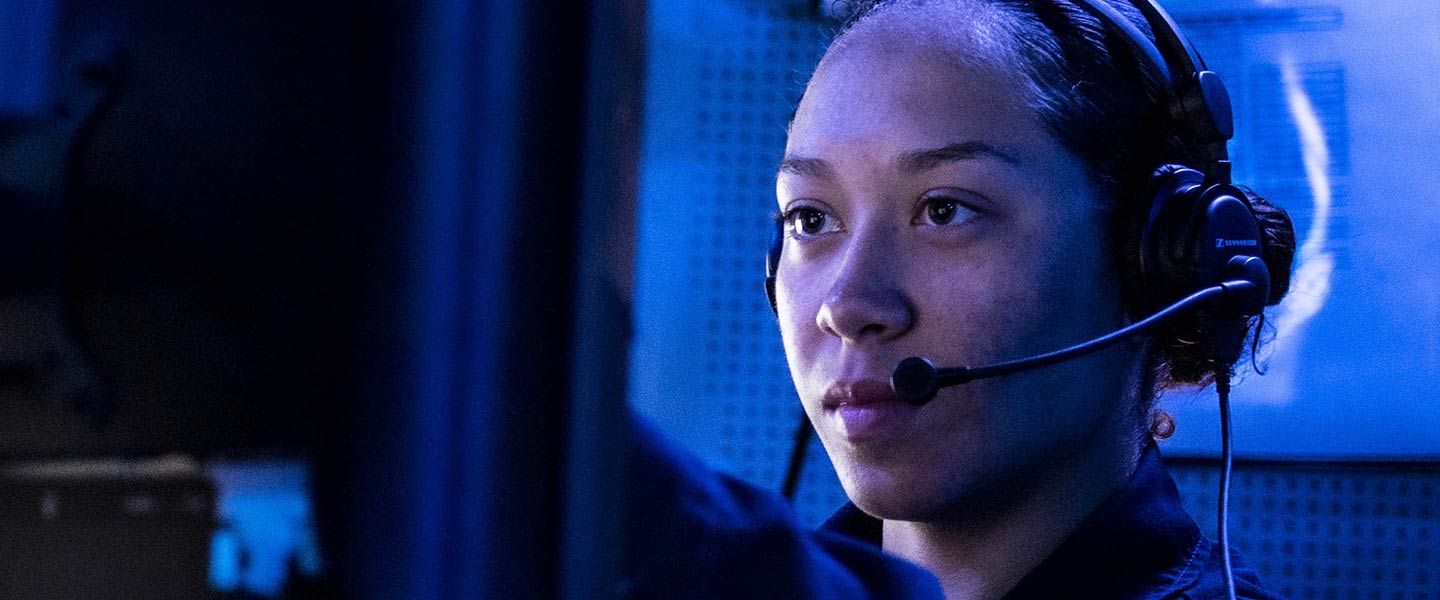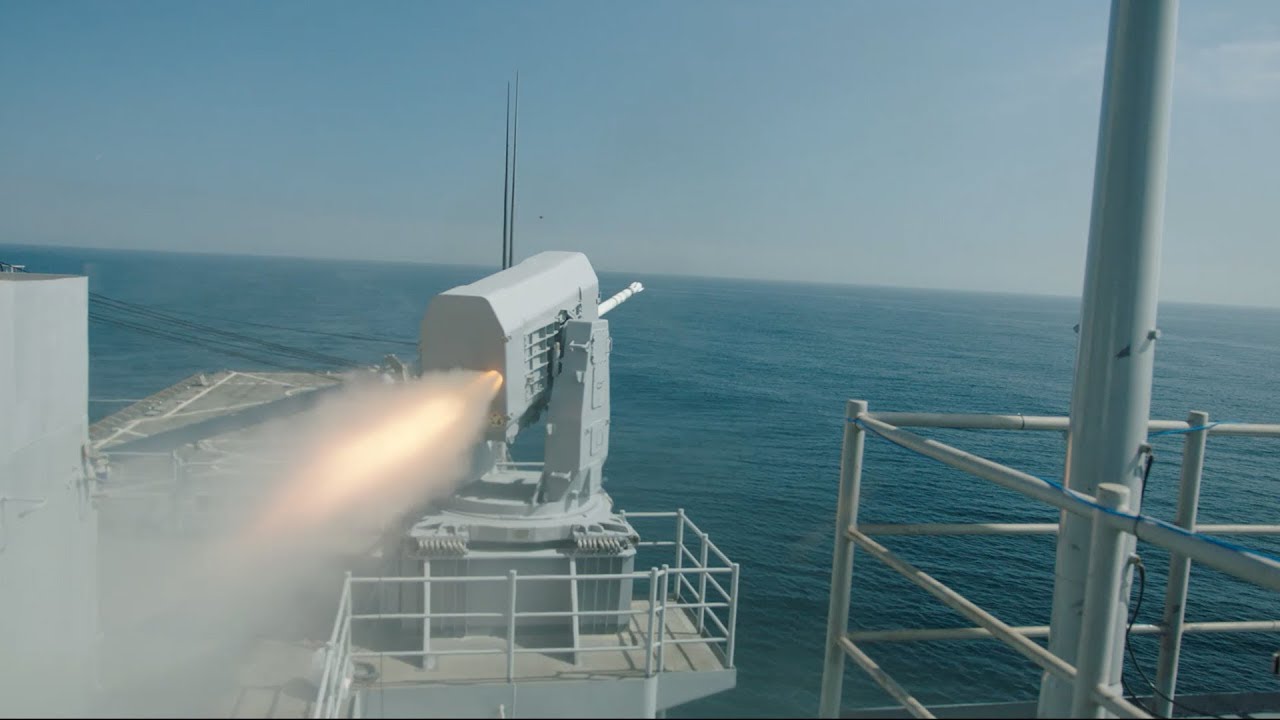What to Expect
More Information
Responsibilities
Cryptologic Technicians Technical (CTTs) serve as experts in airborne, shipborne and land-based radar signals. Their responsibilities include:
- Operating electronic intelligence-receiving and direction-finding systems, digital recording devices, analysis terminals and associated computer equipment
- Operating systems that produce high-power jamming signals used to deceive electronic sensors and defeat radar-guided weapons systems
- Providing technical and tactical guidance in support of surface, subsurface, air and special warfare operations
Work Environment
Cryptologic Technicians perform a variety of duties worldwide, at numerous overseas and stateside shore commands, aboard surface ships, aircraft and submarines and with Naval Special Warfare. They generally divide time between assignments ashore and afloat.
Cryptologic Technicians Technical can expect to work in clean, orderly, air-conditioned spaces, with little supervision. Personnel in the CTT rating normally work with other intelligence and cryptology specialists on tasks that require more mental than physical effort.
As a CTT, you may work independently or as part of small, coordinated teams – ultimately under the supervision of Cryptologic Warfare Officers (four-year degree required) or Cyber Warfare Engineers (four-year degree required).
Training & Advancement
Upon completion of initial training at Recruit Training Command Great Lakes (known as Boot Camp), you’ll report for specialized training, including:
Class “A” Technical School (12 weeks) in Pensacola, FL, for training in radar system theory and fundamentals of operation, electronic intelligence analysis, operation of specialized analog and digital collection devices, operation of radar analysis equipment, radio-wave modulation principles, automated data processing and reporting systems and methods, computer operations and security procedures.
After you’ve completed training, you may expect assignments worldwide, with duty stations throughout the continental United States, Europe, Hawaii and the Western Pacific. CTTs may be assigned to ships, aircraft squadrons, subsurface platforms, Naval Special Warfare (NSW) and various shore-based commands throughout the world.
To learn more about the specific training path for Cryptologic Technicians Technical, connect with a recruiter.
Promotion opportunities are regularly available but competitive and based on performance.
Advanced Training
Advanced training as a Cryptologic Technician Technical may also be available during later stages of your career. For those with further leadership aspirations and a college degree, Officer roles may be available, providing opportunities to lead and train others.
Post-Service Opportunities
Specialized training received and work experience gained in the course of service can lead to valuable credentialing and occupational opportunities in related fields in the civilian sector.
Education Opportunities
Beyond offering access to professional credentials and certifications, Navy technical and operational training in the field of intelligence can translate to credit hours toward a bachelor’s or associate degree through the American Council on Education.
You may also continue your education through undergraduate degree opportunities like the Navy College Program and Tuition Assistance and the Post-9/11 GI Bill.
Qualifications & Requirements
A high school diploma or equivalent is required to become an Enlisted Sailor in the Navy. Those seeking a Cryptologic Technician Technical position must be U.S. citizens. Applicants must also meet eligibility requirements for a Top Secret/Sensitive Compartmented Information security clearance. Normal color perception, sight, speech and hearing are required.
They should have exceptionally good character, resourcefulness, curiosity, a good memory, an aptitude for mathematics and the ability to work in a dynamic environment and combine various sources of information into a coherent picture.
General qualifications may vary depending upon whether you’re currently serving, whether you’ve served before or whether you’ve never served before.
Part-Time Opportunities
There are part-time opportunities available as a Cryptologic Technician Technical.
Serving part-time as a Navy Reserve Sailor, your duties will be carried out during your scheduled drilling and training periods. During monthly drilling, Cryptologic Technicians Technical in the Navy Reserve typically work at a location close to their homes.
For annual training, Cryptologic Technicians Technical may serve anywhere in the world, whether on a ship at sea or at bases and installations on shore.
Take a moment to learn more about the general roles and responsibilities of Navy Reserve Sailors.
Most of what you do in the Navy Reserve is considered training. The basic Navy Reserve commitment involves training a minimum of one weekend a month (referred to as drilling) and two weeks a year (referred to as Annual Training) – or the equivalent of that.
Cryptologic Technicians Technical in the Navy Reserve serve in an Enlisted role. Before receiving the ongoing professional training that comes with the job, initial training requirements must be met.
For current or former military Enlisted servicemembers, prior experience satisfies the initial Recruit Training requirement, so you will not need to go through Boot Camp again.
For those without prior military experience, you will need to meet the initial Recruit Training requirement by attending Boot Camp in Great Lakes, IL. This training course will prepare you for service in the Navy Reserve and count as your first Annual Training.
































































































































